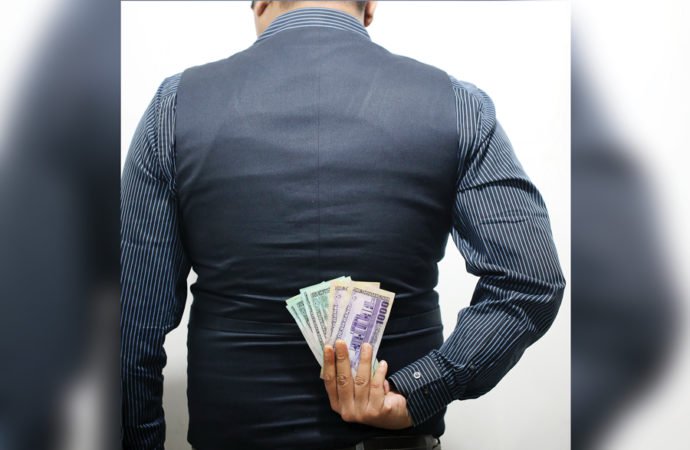
Foreign trade, especially import of capital machineries, is being used illegally to siphon off money from our country.
A negative trend in the performances of some major economic indicators for Bangladesh in 2017 has lead economists to ask a very important question: Is the scale of money siphoning on the rise?
The question becomes even more pertinent after the name of prominent businessman and politician Abdul Awal Mintoo emerged in the Paradise Papers, the second-largest leak of documents pertaining to tax avoidance.
Earlier in another leak, about 18 Bangladeshi citizens, including Awami League Presidium member Kazi Zafar Ullah, were named in the Panama Papers and were found to be shareholders in foreign shell companies.
A look at this year’s major economic indicators points to a disturbing trend.
The country’s current account deficit amounted to $7,655 million in the first nine months of 2017 calendar year, resulting in a wide trade gap. Export earnings experienced very slow growth, while imports went up by more than 30%.
Meanwhile, the overseas employment sector remained strong over this year, but the inflow of remittances faced a significant downtrend.
Moreover, the registration for a second home in Malaysia and many other countries has also increased in 2017.
From January to June of the current year, a total of 163 Bangladeshis invested in the Malaysia My Second Home (MM2H) project, and the number is likely to touch the 300-mark at the end of this year.
Though the amount of credit disbursement to the private sector has increased, the amount of defaulted loans also witnessed a similar increase this year.
According to the latest Bangladesh Bank data, as of June this year, the amount of accumulated default loans stood at around Tk1,19,000 crore, which is 12% of Bangladesh’s GDP.
Money siphoning routes
According to a recent Bangladesh Institute of Bank Management (BIBM) study titled “Review of the Trade Services Operations of Banks 2016”, every year a huge amount of money is being siphoned off the country.
It is happening primarily in four forms – over and under invoicing, over and under shipment, multiple invoices, and falsely declared goods and services.
Meanwhile, a study of Dhaka-based think tank the Centre for Policy Dialogue (CPD) revealed that 88% of illicit financial flows from Bangladesh in the last 10 years took place through trade mispricing.
BIBM Director General Toufic Ahmad Choudhury told the Dhaka Tribune: “There can be ups and downs in major economic indicators. If the change is short-term, there is nothing to worry. However, it will be a matter of concern if the changes persist for a long time.
“If you look at the banking sector, credit to private sector is increasing, but so are the non-performing loans [NPLs]. This has become a long-lasting problem. On the other hand, the current remittance inflow does not match the overseas employment sector.”
Toufic pointed out that to prevent money laundering, the bankers have to be alert, and especially the price verification mechanism has to be updated.
“Too many government agencies and offices deal with the issue of money laundering in a questionable manner. They might know many things about the illegal capital outflow, but they might be powerless to do anything to prevent it,” Toufic said.
Speaking on the issue, economist and former financial advisor to the caretaker government in Bangladesh AB Mirza Azizul Islam told the Dhaka Tribune: “Foreign trade, especially import of capital machineries, is being used illegally to siphon off money from our country.”
He pointed out that though there is no official data, the high growth of imports over the past few months, and the higher amount of second home registration in Malaysia and Toronto, could very well be indicators of money laundering.
“A sense of security in terms of law and order and an investment-friendly climate can prevent the outward flow of money from Bangladesh,” Azizul Islam added.
Meanwhile, speaking to the Dhaka Tribune, BIBM Supernumerary Professor Md Yasin Ali said: “Preventing money laundering is one of the major challenges for Bangladesh, which has an underground economy.
“As the quality of loans is decreasing, the NPL is going up. Businesses take advantage when banks fail to assess the capacity of its clients to pay back loans. So, these loans become NPLs, and the businesses could then transfer the money abroad.”
Source: Dhaka Tribune.

